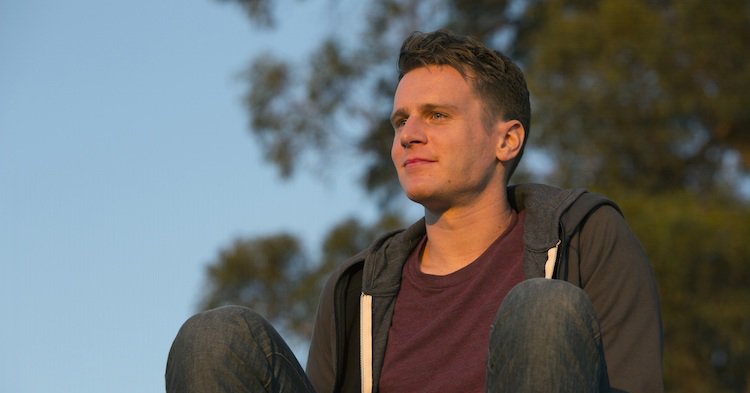‘Looking: The Movie’ review – Is it the satisfying conclusion we all hoped for?
By Will Stroude

Focusing on three gay friends living in San Francisco, Looking arrived on HBO back in 2014 to a generally warm reaction from critics and a decidedly more mixed reaction from audiences. Many took issue with the show’s its themes and the portrayal of characters, as well as the nuanced/plodding (delete as appropriate) script. While fans of the show fell whole-heatedly in love with the melancholy tales of San Fran’s scene, a failure to fully capture its target audience – and the low ratings which followed, meant Looking only lasted two seasons. But it was the passion of that core fanbase – the uproar, the petitions – which led to this one-off feature-length finale, set to air on UK screens next Tuesday (August 2).
Set almost a year after the events of last episode proper, focal character Patrick (Jonathan Groff) returns for best friend Agustín’s (Frankie J. Alvarez) wedding. “Is it good to be back?” the taxi driver asks. Patrick replies with uncertainty as he attempts to front a facade that he’s a “new man”, that his confused neurosis is a thing of the past. Upon returning, Patrick is confronted with the two main love interests; the very charming hairdresser Richie (Raúl Castillo) and his equally as confused ex-boss Kevin (Russell Tovey). Patrick soon realises he needs to get some closure. Again.

One of the recurring bugbears audiences had with Looking’s original run was the character of Patrick, whose characterisation many found increasingly nauseating and difficult to watch. However, the nuance of Groff’s character is something that should be admired. It’s clear that writer Michael Lannan didn’t create these characters to be adored, and instead forged people from personal experience, with little filter and flaws fully exposed. The unwelcome truth many viewers have had a hard time with is that many of them are, in many ways, Patrick themselves, or at least know a Patrick personally – self-obsessed, insecure and at times, insufferable but still with a fully beating heart. It’s not always a welcome prospect for a TV show to hold a mirror up to its audience, but sometimes it’s an important one.
The core of the Looking: The Movie still comes down to how Patrick, Dom and Agustín want a contented and fulfilled life, just like most of us. And while the show may only focus on just three versions of an endless spectrum of representation, a lot of ground is still covered: Monogamy, polygamy, children, marriage, being single, promiscuity, friendship and break-ups. And even if none of these things are part of your version of what it means to be gay, they will be for many people.

In one of the film’s highlights, Dom and Patrick share a bed, reminiscing on their friendship, the past and the absurd prospect of them as an item. True to form, Looking: The Movie includes a lot of long, intimate conversations. And these conversations are rarely shown for exposition, or moving along some kind of tightly knitted together storyline. But while Looking never claimed to have the the melodrama of shows like Girls, Sex and the City or Queer as Folk, conversations and connections between these characters we’ve come to know and love always leads to a richness of feeling so many shows are unable to produce.
Though Dom and Agustín are sadly short on screen time, and Patrick spends a further 85 minutes choosing between two men, there’s still enough from everyone for fans to get a satisfying conclusion to a show which forced to hastily wrap up storylines up after being cut down in its prime. Ultimately, while nothing ever felt truly ground-breaking with Looking, with such a small canon of LGBT-focused television, it’s a show that will be missed from the schedules. Its subtle observation and commentary on the gay community, whilst at times flawed, was always intriguing, and often heart-warming. And the finale ties the franchise into a much neater neater (but possibly open-ended) parcel.
Looking: The Movie airs in the UK next Tuesday, August 2 at 10.15pm on Sky Atlantic.
Words by Joe Passmore
